From the historic transfer of power in April to escalated violence in Arakan State in October, The Irrawaddy revisits 2016’s most important stories.
Power Transfer: From Quasi-Miltary to Civilian
After decades of oppression, the National League for Democracy (NLD) finally came to power in April, touting its famous campaign slogan, “Time for Change.” Daw Aung San Suu Kyi said that there is no such thing as overnight change. So have things really changed?
Jan. 28—The new Parliament was sworn in, with the NLD and the Union Solidarity and Development Party (USDP) reversing their roles after the NLD won 80 percent of contested seats in historic elections in November 2015. Now the NLD gets the final say in the legislature.
March 30—Burma witnessed the first transfer of power to a civilian government in 50 years, ending decades of military rule. However, in addition to 25 percent of seats in the Parliament, the Burma Army retains three key ministries—defense, home affairs, and border affairs—under the 2008 Constitution.
The Parliament elected U Htin Kyaw, a close aide of Daw Aung San Suu Kyi, as the ninth president of Burma since independence in 1948. Since the NLD won the election, Daw Aung Suu Kyi has made it clear that whoever takes Burma’s top job will be her proxy since she was constitutionally barred from the presidency.
Daw Aung San Suu Kyi initially took the helm of four ministries, but has since taken charge of only the foreign ministry and the President’s Office.
April 6—The Union Parliament passed the State Counselor Law, which saw the appointment of Daw Aung San Suu Kyi as the State Counselor and legitimized her as de facto leader of Burma.
Release of Political Prisoners
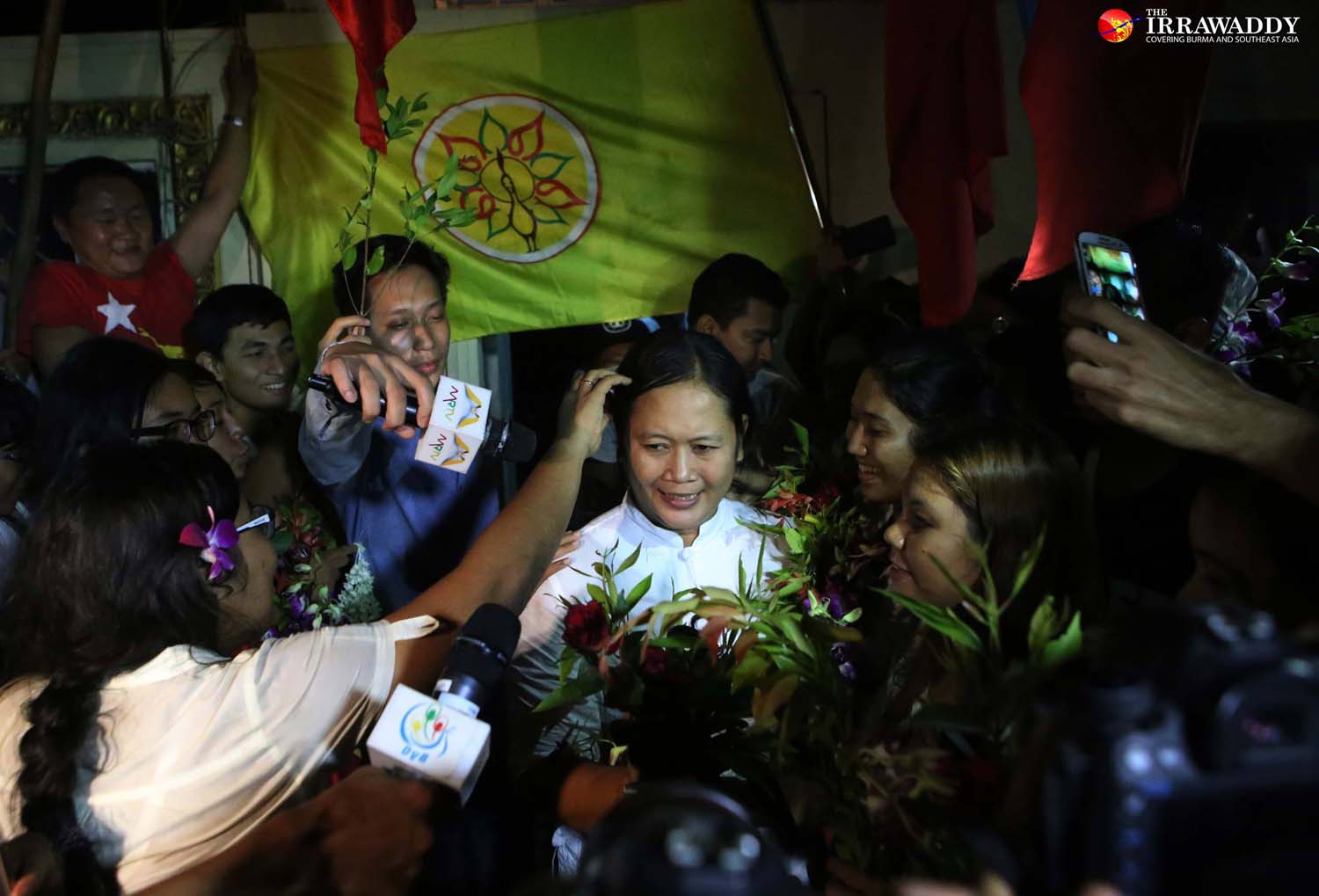
Jan. 22—President U Thein Sein granted presidential amnesty to 102 prisoners, including political prisoners, to mark the beginning of the World Buddhist Peace Conference in Sagaing Division.
April 7-9—The new government dropped lawsuits against 199 political prisoners, including political activists and students who demonstrated against the National Education Law and had been detained since March of last year.
April. 17—On Burma’s New Year’s Day, the government granted a presidential pardon, setting 83 political prisoners free from various correctional facilities across the country.
According to the November data of the Assistance Association for Political Prisoners (AAPP), there were 195 political prisoners in Burma, 87 of whom are currently serving prison sentences, 24 of whom are awaiting trial while residing in prison, and 84 of whom are awaiting trial outside prison.
Gifts and Graft
April 1—The President’s Office released a guideline on acceptance of gifts, which bars government officials from accepting presents worth more than 100,000 kyats from an individual person in a calendar year.
Burma Flag Mounted on Everest
May 19—Two Burmese climbers successfully reached the top of Mt. Everest and became the first Burmese nationals to scale the world’s highest peak.
Disease, Disaster, and Drowning
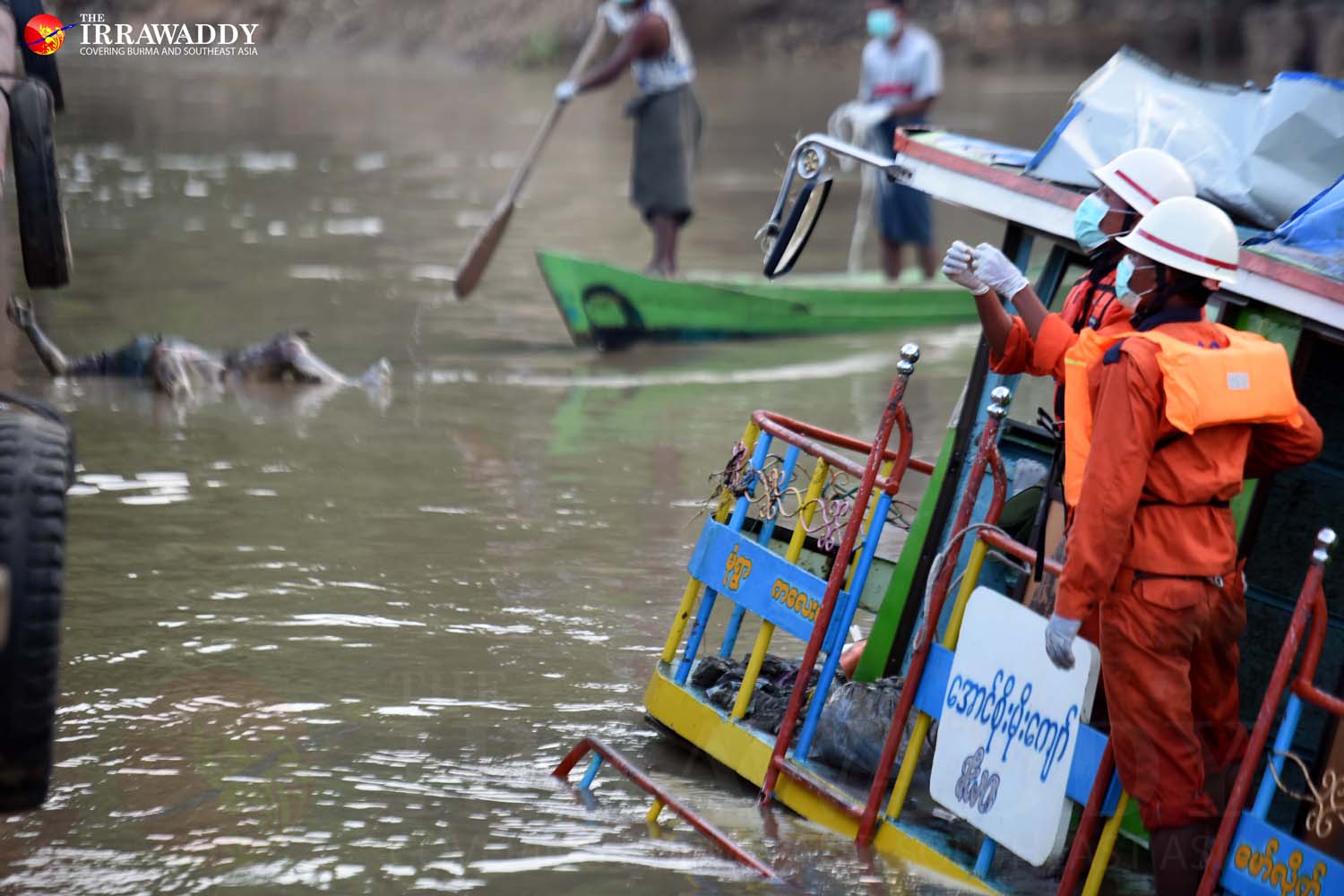
June—Measles broke out in the Naga Self-Administered Zone in Sagaing Division. The health crisis went unidentified for two months and claimed 38 lives before it received national attention from the public and the media in early August. The epidemic killed more than 80 people in total, most of them children, across the zone, and was the deadliest disease outbreak in Burma in 2016.
Aug. 24—A powerful 6.8-magnitude earthquake struck central Burma, killing at least three people and damaging over 400 pagodas in the famous ancient capital of Bagan. Detailed assessment was then carried out with the help of UNESCO. Renovations will start in January, and Union Minister for Religious Affairs and Culture U Aung Ko told Parliament in December that it would take three to five years to renovate significant temples and pagodas.
Oct. 15—In the most fatal accident of the year, the privately owned Aung Soe Moe Kyaw-2 ferry capsized in the Chindwin River killing some 70 passengers travelling from Homalin to Monywa in Sagaing Division, many of them teachers. Authorities were unable to confirm the exact number of passengers on board at the time of the tragedy but some survivors estimated that it was carrying about 250 passengers—far more than it was supposed to hold.
Beating the Betel
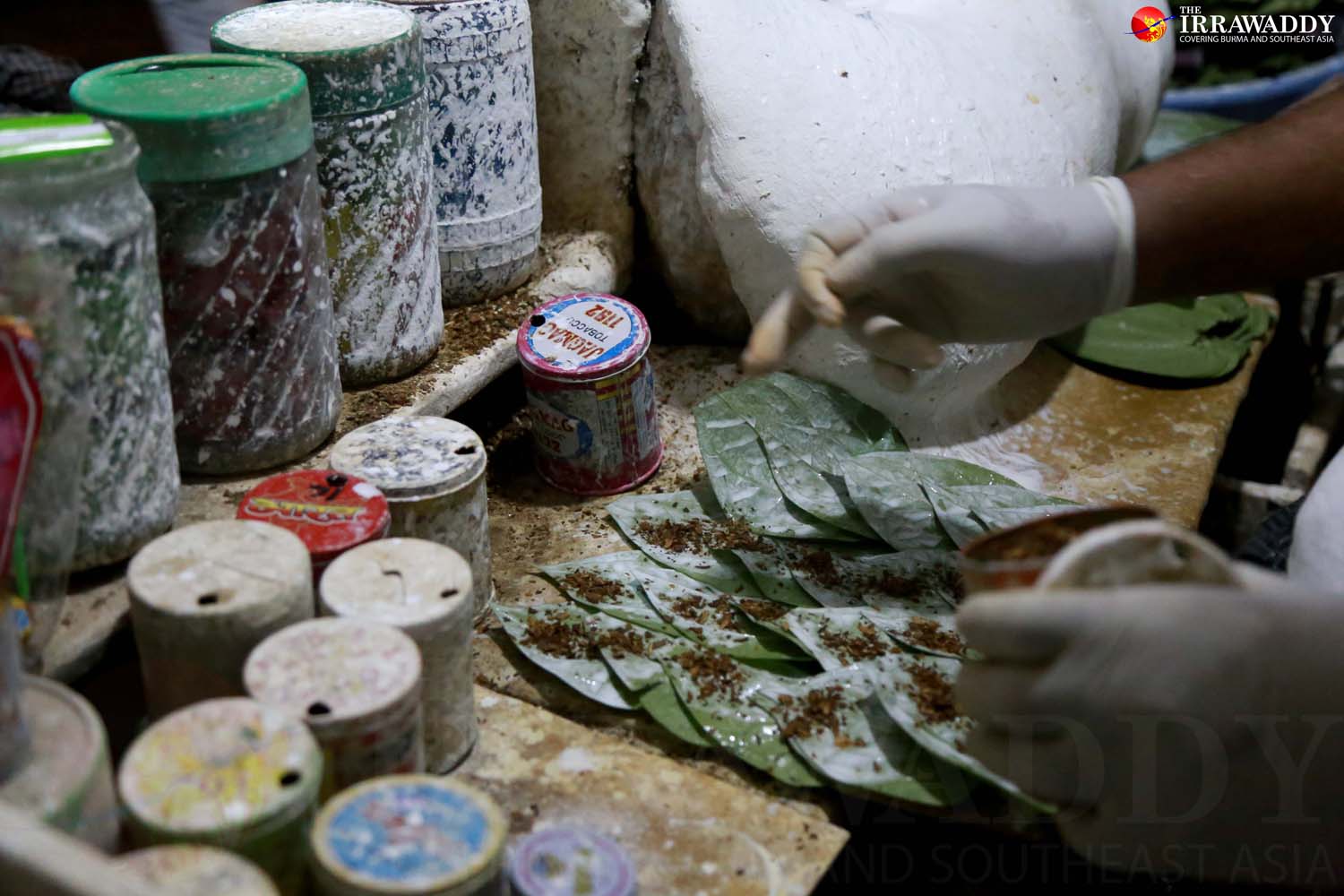
Burma’s State Counselor appears to hate the betel quid chewing habit and the reckless spitting of her citizens and she certainly has concerns over its health impact.
The government introduced a new anti-betel policy on May 27 to reduce betel quid chewing. The President’s Office opened an online poll in June to collect the public’s thoughts on reducing betel quid chewing and spitting in government offices and public places.
With a lack of detail as how authorities should enforce the ban on betel quid chewing and spitting in public spaces chief ministers of divisions and states instead shut down betel nut shops in their administrative areas, forcing Daw Aung San Suu Kyi to clarify that she merely wanted to find alternative ways for vendors’ to make a living other than by selling betel nuts. The policy has since come to nothing.
USDP Internal Split, New Leadership Beyond U Thein Sein
After suffering a humiliating defeat in November, the USDP felt it needed a shake-up.
April 22—The USDP sacked 17 senior members including, Thura U Shwe Mann, who served as a parliamentary speaker under the previous government. Last August, Thura U Shwe Mann was ousted from his USDP chairman post in what was believed to be a power struggle between factions within the military-backed party. In February, Daw Aung San Suu Kyi offered him the opportunity to preside over the Legal Affairs and Special Cases Assessment Commission in the new, NLD-dominated Parliament.
Aug. 23—U Than Htay was elected as the new chairman of the USDP, as former president U Thein Sein stepped down from the party chairmanship. The USDP, however, formed a new central leadership committee comprised of nine senior party members and led by U Thein Sein, which will function in an advisory role.
Banned in Rangoon
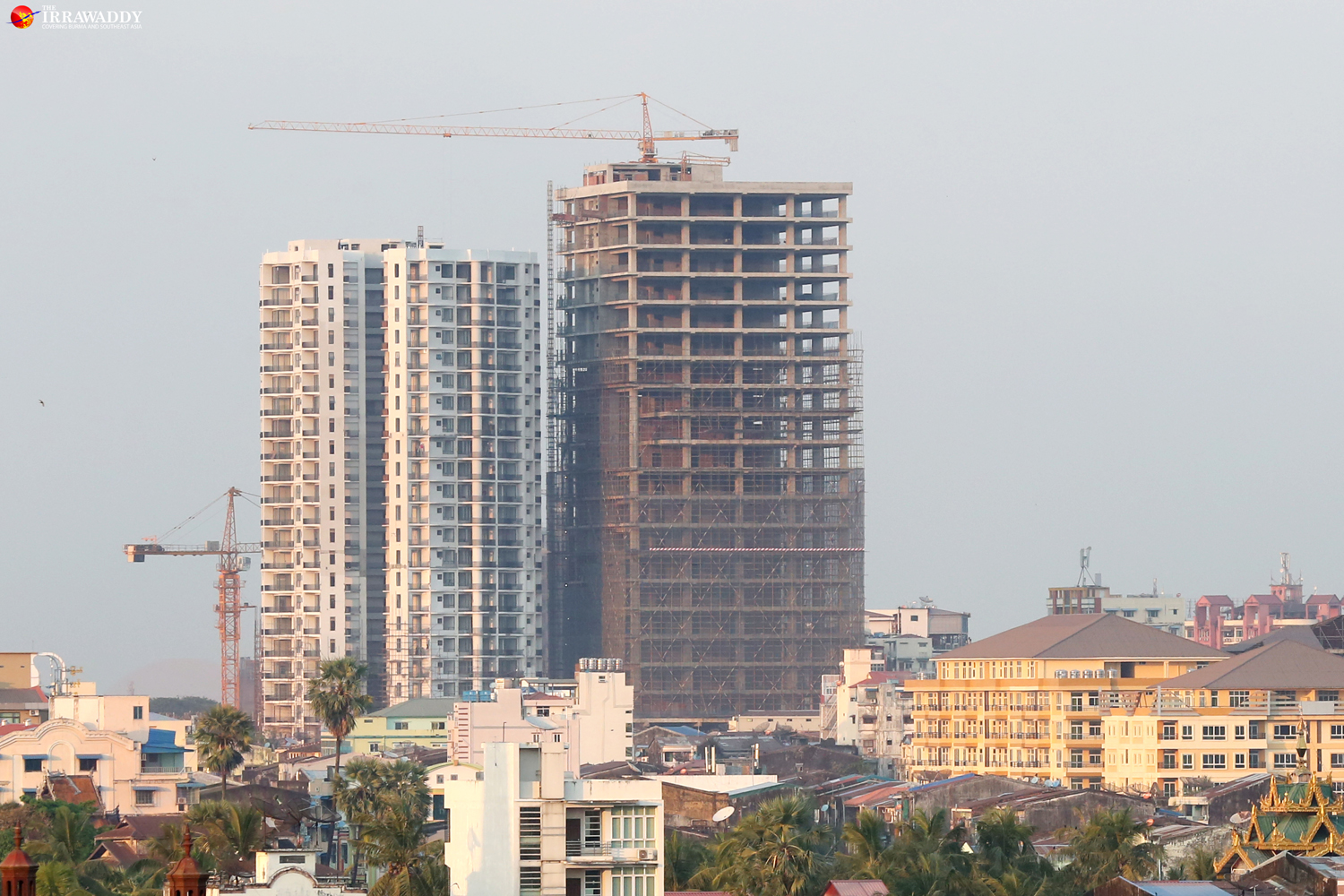
In May, the Yangon City Development Committee (YCDC) announced a halt to the construction of more than 200 buildings in Rangoon that were to be nine or more stories high, declaring that resumption would be permitted only after on-site investigations take place. A high-rise review committee was then formed in June to assess adherence to the newly enforced urban planning and safety regulations.
The review committee suspended the construction of 12 high-rise projects for months, requiring them to reduce their heights. But then in August, the Rangoon division chief minister agreed to resume construction without height reductions, following a petition from developers.
April 2—Rangoon Division Chief Minister U Phyo Min Thein introduced a ban on all for-profit pavilions during Thingyan, or Burma’s Water Festival, a move that drew widespread criticism from businessmen and festival revelers.
Fall of Ma Ba Tha
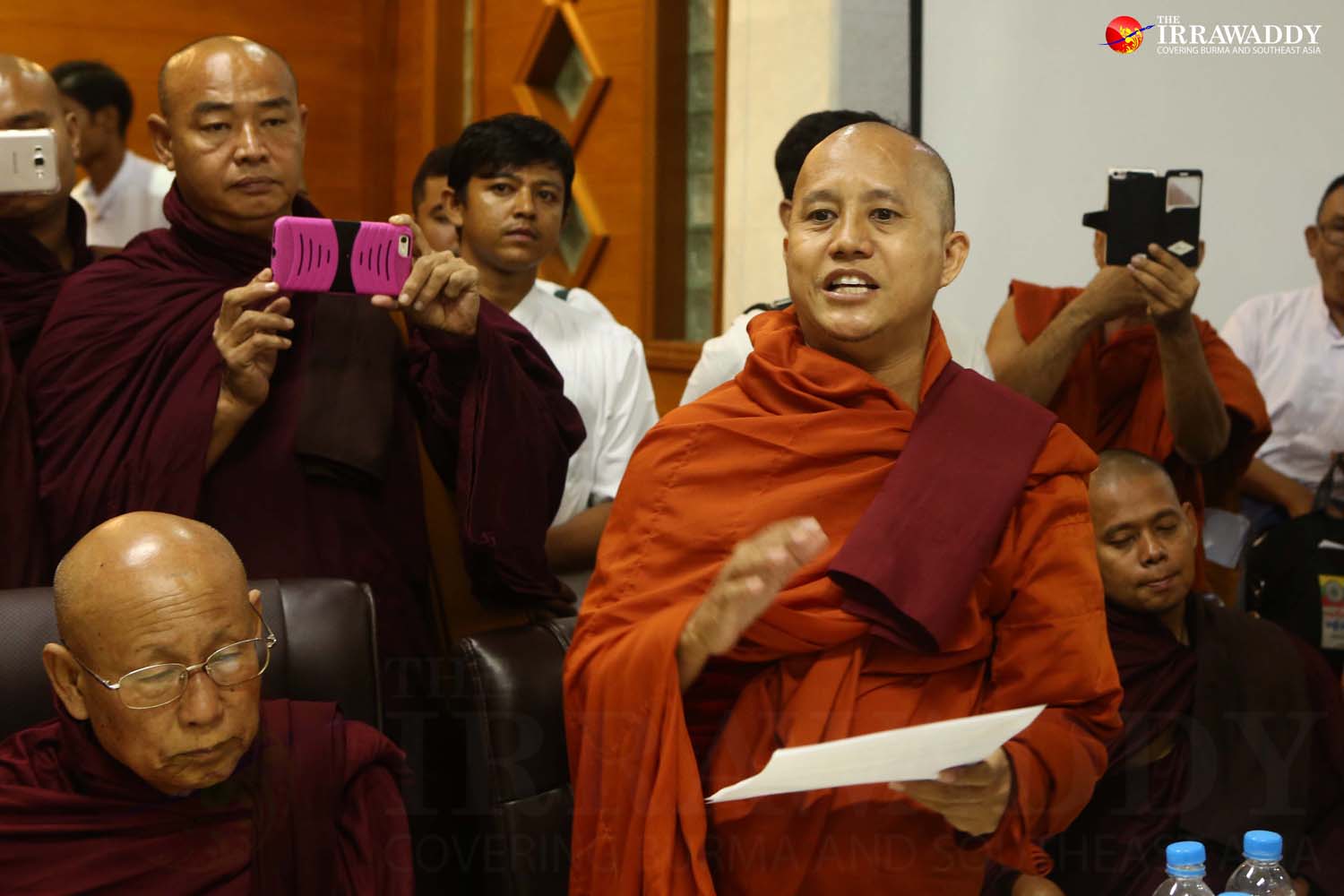
It all started with Rangoon Chief Minister U Phyo Min Thein who said the Association for the Protection of Race and Religion—better known by its Burmese acronym Ma Ba Tha—was not necessary during his visit to Singapore in July. The chief minister reaffirmed his statement on his return, prompting Ma Ba Tha to call on the NLD government to take actions against the Rangoon chief minister for his words. The group also threatened to hold a nationwide protest. But the government did not respond and Ma Ba Tha later called off the protest.
Following this, Union Minister for Religious Affairs Thura U Aung Ko and Rangoon Chief Minister U Phyo Min Thein spoke with the state Buddhist authority State Sangha Maha Nayaka Committee. Days later, the committee officially disowned Ma Ba Tha, saying that it was not a lawful monks association.
Thura U Aung Ko also warned Ma Ba Tha, saying that “no monk is above the law.” Since then, Ma Ba Tha has kept silent and did little when what some are calling a Muslim insurgency broke out in Arakan State in October.
Peace and Panglong
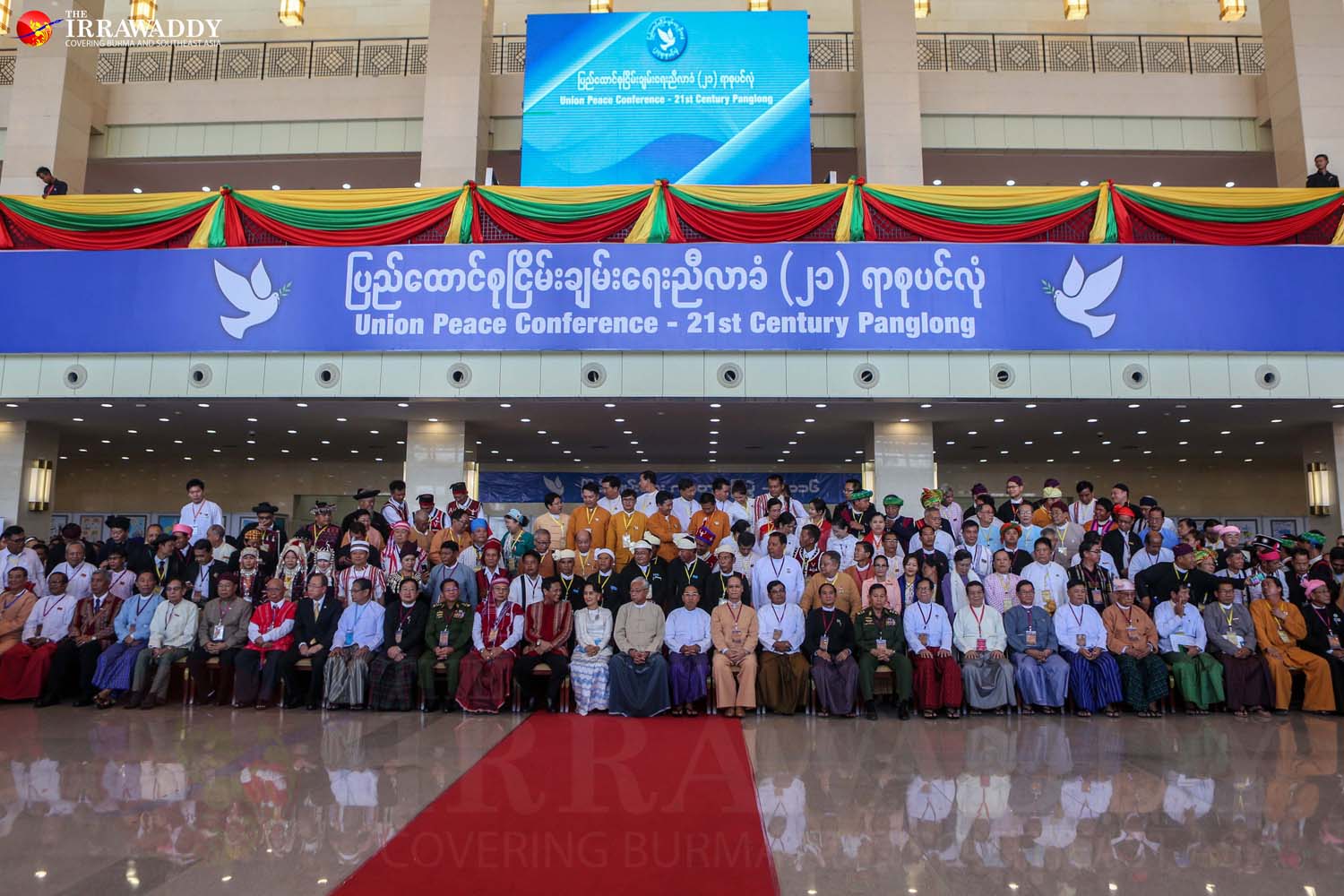
Burma had the Panglong conference, but it also had more clashes. Is the country’s peace process at an impasse?
Aug. 31—The 21st Century Panglong Conference kicked off in Naypyidaw. Many had high hopes that the conference would be an initial step toward national reconciliation, but on the second day of the conference, delegates of the United Wa State Army (UWSA), the most powerful ethnic armed group in Burma, walked out of the conference. There conference was also not inclusive since the Myanmar National Democratic Alliance Army (MNDAA), Ta’ang National Liberation Army (TNLA), and Arakan Army (AA) were all barred from participating.
In her closing speech at the conference, Daw Aung San Suu Kyi told participants not to dwell on the past, but to look to the future with courage. The next chapter of the conference is planned to be held next February.
Daw Aung San Suu Kyi also replaced the lead peace negotiator of the government with Dr. Tin Myo Win, who is also her personal doctor and has changed the name of the government-affiliated Myanmar Peace Center to the National Reconciliation and Peace Center (NRPC).
Outgoing President U Thein Sein intended for the peace process to be one of the legacies of his five-year presidential tenure, and he hoped that the Union Peace Conference held just two months before his power transfer would go down as one of his achievements.
The Union Peace Conference took place in Naypyidaw on Jan. 12, but without several key players who are at the heart of Burma’s civil war, and amid ongoing fighting in Arakan, Shan and Kachin States.
The five-day conference was built on the nationwide ceasefire agreement (NCA) signed last October. But it was boycotted by the United Nationalities Federal Council (UNFC)—a nine-member ethnic alliance of NCA non-signatories and Burma’s most powerful ethnic armed groups, including the United Wa State Army (UWSA).
Child Labor and Rights Abuses
September —The Ava tailoring factory’s enslavement of two girls took center stage following an investigative report from a Myanmar Now journalist. The two teenage maids were subjected to abuse for years by their employers and there was public outcry over the fact that the Myanmar National Human Rights Commission (MNHRC) negotiated a financial settlement for the victims. The Parliament decided to take action against MNHRC members and four members resigned.
New Islamic Insurgency in Burma
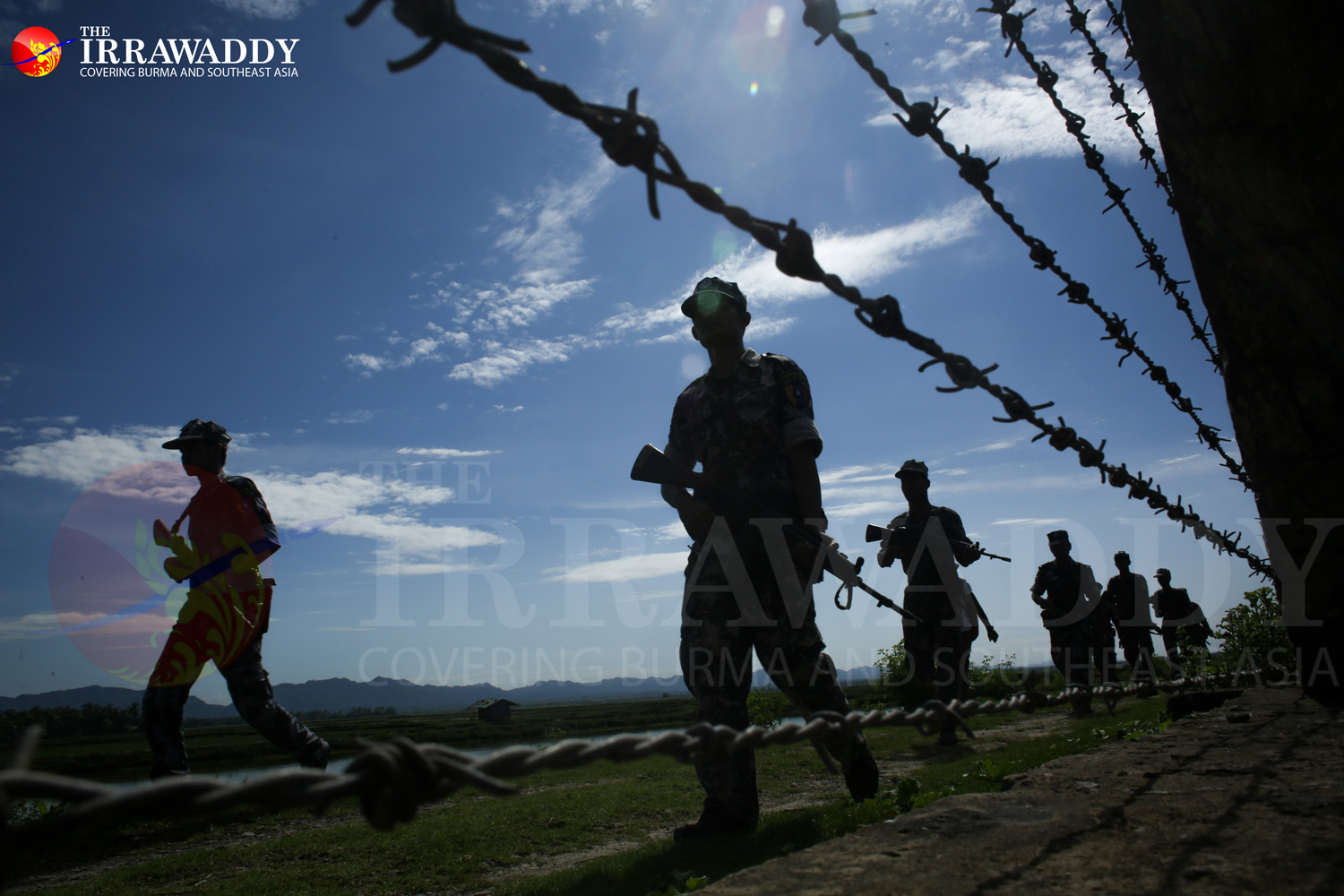
October 9—Militants attacked border police outposts near the Bangladeshi border in Maungdaw Township in northern Arakan State on Oct. 9, killing nine policemen and prompting the Burma Army to conduct so-called “clearance operations,” which fueled instability in the state gripped by communal strife since 2012.
The government since declared Maungdaw a military operation area and restricted access for journalists and NGOs. On Oct. 14, it released a statement saying that the Oct. 9 attacks were led by a group that identified as Aqa Mul Mujahidin, which has received financial backing from Islamic terrorist networks.
According to initial government figures, the military suffered seven casualties (including the death of a military column commander) and the police suffered 10 casualties through the third week of November. However, the government did not later release these figures.
Both the Burma Army and the government have denied allegations of human rights abuse and mistreatment of the estimated 1.1 million Rohingya in the country, despite numerous reports saying otherwise.
The local and international community called on the government to allow access into the area, but the government refused for security reasons. But on Dec. 16, the government allowed 13 independent journalists from local and international media outlets to participate in a guided visit of Arakan State’s Maungdaw Township, which took place on Dec. 20.
Domestically, several international media outlets faced criticism for allegedly relying solely on unconfirmed sources and rumors. Burma came under intense international pressure after Malaysian Prime Minister Najib Razak led a protest rally on Dec. 4 against what he called the genocide of the Rohingya.
Kofi Annan’s advisory commission on Arakan State visited Maungdaw Township in late November and cautioned that the charge of genocide should not be used loosely.
The government formed a state-level commission on Dec. 1 to investigate the attacks, nearly two months after clashes initially broke out. The commission concluded its first trip to Arakan State in the second week of December, and, predictably, denied all allegations of abuse.
Emergency Provisions Act Annulled
October, 4—The new government scrapped the controversial Emergency Provisions Act, known locally as 5(J), which was frequently used by Burma’s former military administrations to jail thousands of political dissidents.
Clashes, Not Ceasefire
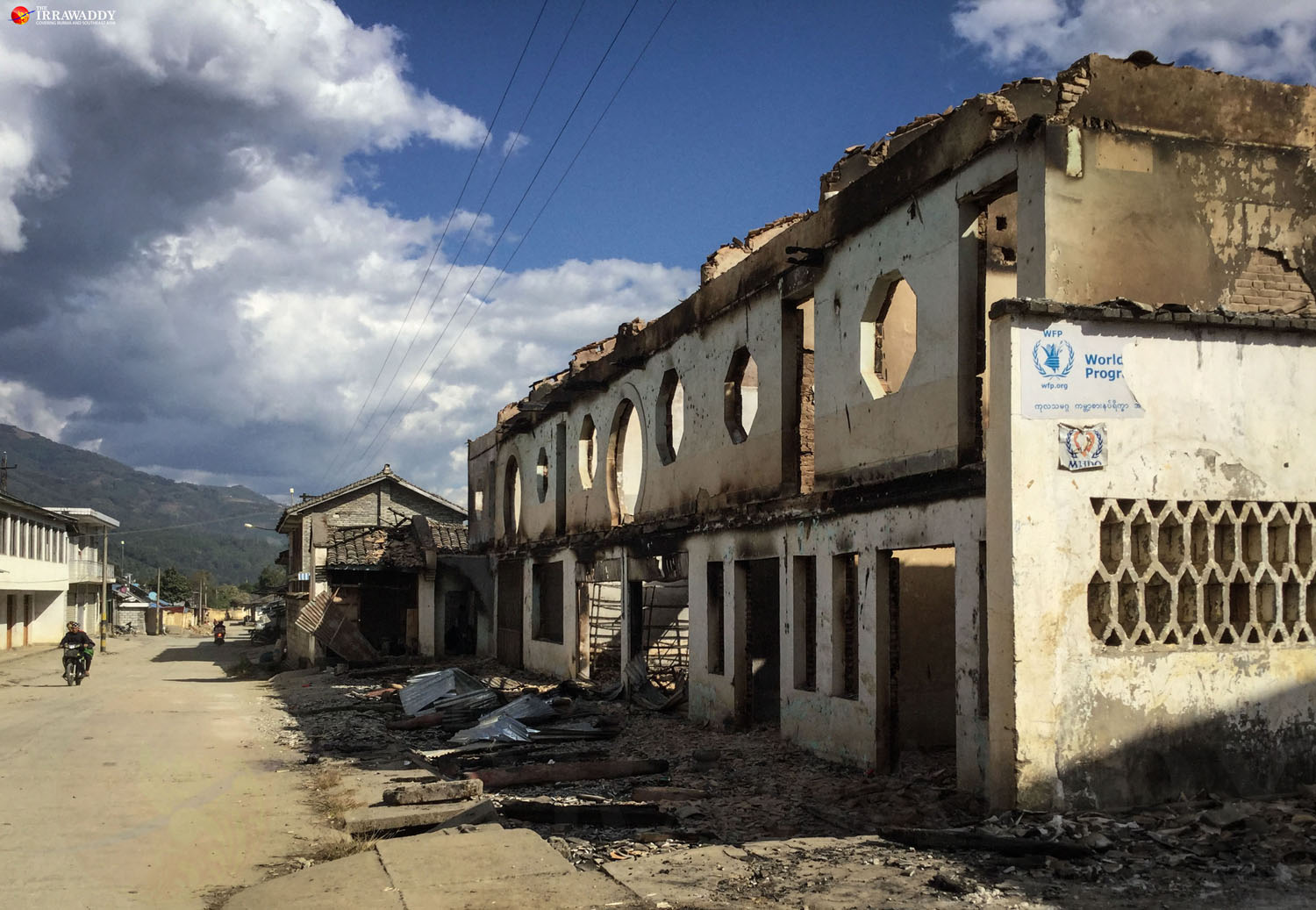
Burma hoped that the clashes erupting from the country’s ever-simmering civil war would finally ease following the 21st century Panglong conference. But the reverse happened.
Nov. 20—A joint force of Ta’ang National Liberation Army (TNLA), Kachin Independence Army (KIA), Myanmar National Democratic Alliance Army (MNDAA), and Arakan Army (AA)—calling themselves the Northern Alliance—launched an offensive against police and Burma Army posts in the Muse border trade zone and in other towns in northern Shan State.
The clashes forced some 5,000 people from their homes before Northern Alliance troops withdrew from Mong Ko on Dec. 4, following air strikes by the Burma Army. Border trade was seriously disrupted by the fighting.
Thirteen civilians were killed and 49 others were injured in the clashes, according to a state-run media report on Dec. 10. Fifteen police were also killed and another 10 injured.
On Dec. 2, Defense Minister Lt-Gen Sein Win proposed to the Lower House that the Parliament should consider labeling the northern ethnic alliance as a coalition of “terrorist organizations.” However, the proposal was simply recorded, and nothing has yet come of it.
Even so, the Shan State parliament on Dec. 7 voted to brand the ethnic armed groups belonging to the alliance terrorist organizations, following a USDP lawmaker’s proposal.
The Burma Army launched what it has called “clearance operations” near KIA headquarters in Laiza in the second week of December, reportedly using air strikes. On Dec. 17, the Burma Army took over the Gideon outpost, a KIA stronghold, in Kachin State’s Waingmaw Township.
Slow Economy and Rising commodity prices
Burma’s State Counselor admitted that the country’s economy fell short of expectations during the first six months of her government, though she expects it to pick up as a result of yet-to-be-seen foreign investment.
In December, the dollar exchange rate broke an all-time record in Burma, reaching 1,450 kyats to the dollar—50 kyats more than its previous record in 2007 when the country was under military rule.
July 29—The NLD-led government publicized a 12-point economic policy. The policy contained only broad outlines, leaving some industry leaders frustrated with the lack of detail.
Almost three months later, the government announced long-awaited detailed economic policies. State Counselor Daw Aung San Suu Kyi pledged a secure business environment for both local and foreign investors. She also reassured some of Burma’s most prominent cronies that their place in Burma’s economy and society was secure, so long as they backed government policy, left themselves open to scrutiny, and worked for others.
Oct. 18—President U Htin Kyaw signed the new Myanmar Investment Law into effect. It combines the Myanmar Citizens Investment Law and the Foreign Investment Law, both of which were adopted under the previous government.
Sanctions Lifted, But for Whom?
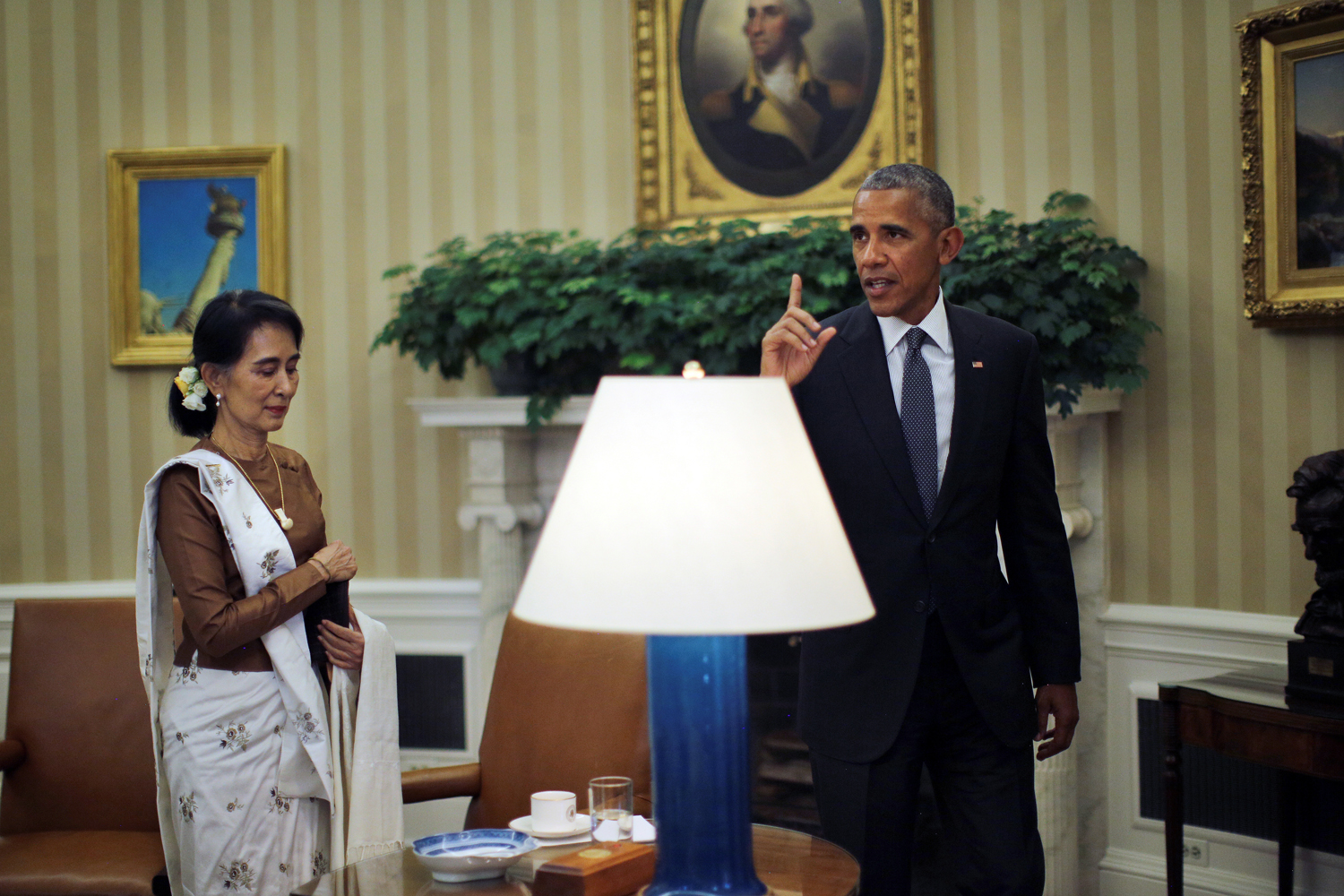
The United States finally lifted its economic sanctions on Burma, which had been in place since 1996. But who will benefit from this policy shift has yet to be determined.
Oct. 8—US President Barack Obama formally announced the lifting of US sanctions on Burma by terminating an emergency order that deemed the policies of the former military government a threat to US national security. Among individuals taken off the blacklist were cronies and senior military officers, including former Snr-Gen Than Shwe.
The move followed a meeting between Burma’s State Counselor Daw Aung San Suu Kyi and President Obama in Washington, DC, in September, where she called for the lifting of economic sanctions.
M-150 Bombs
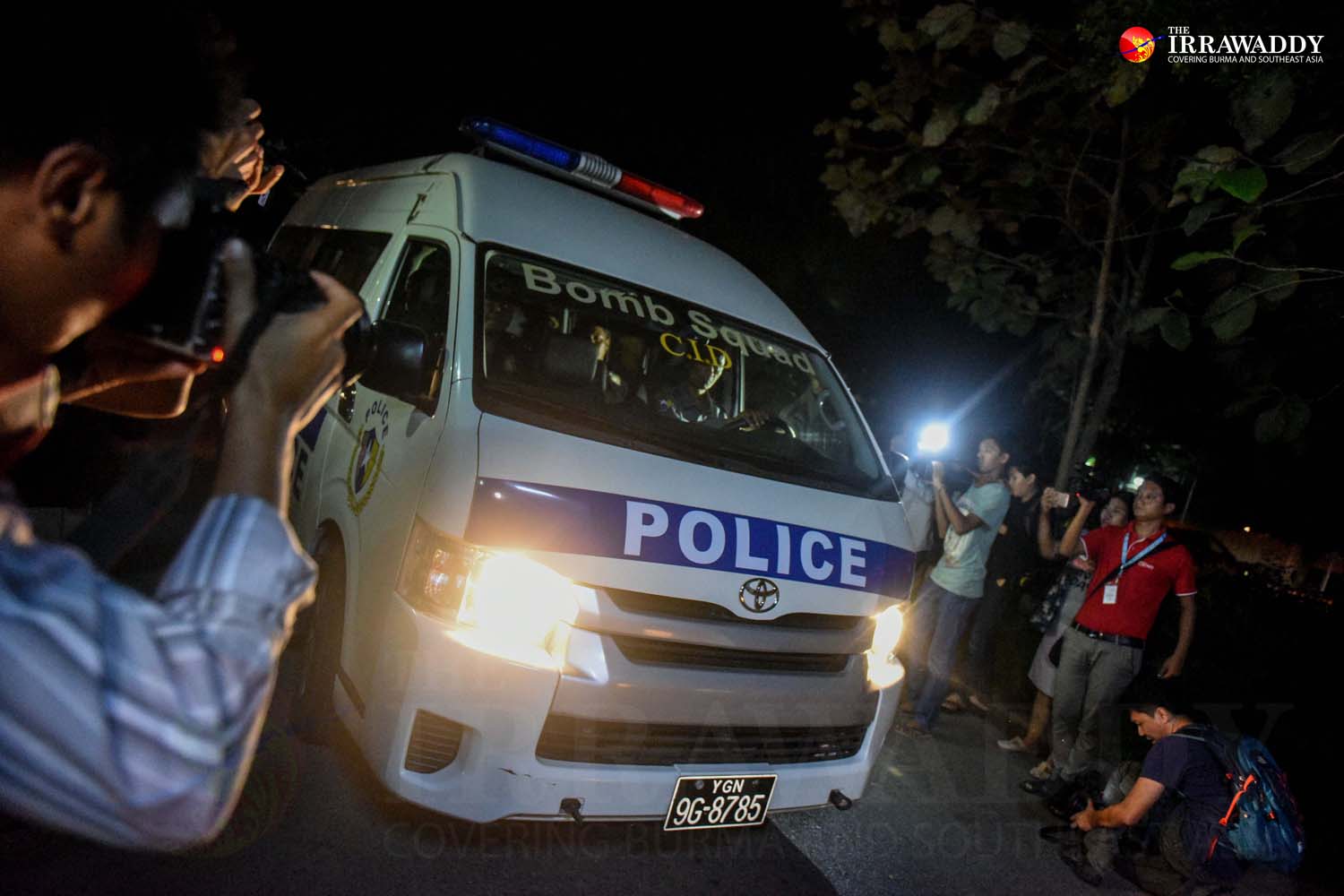
Usually, M-150 is just a soft drink brand. But in November M-150 bottles were used as home-made bombs.
November—Rangoon saw several explosions at three different places between Nov. 17 and Nov. 24 before police reportedly arrested suspects following the last explosion at the immigration department of the Rangoon Division government office. However, police have refused to take questions from the media regarding the explosions.
Abuse of Minors
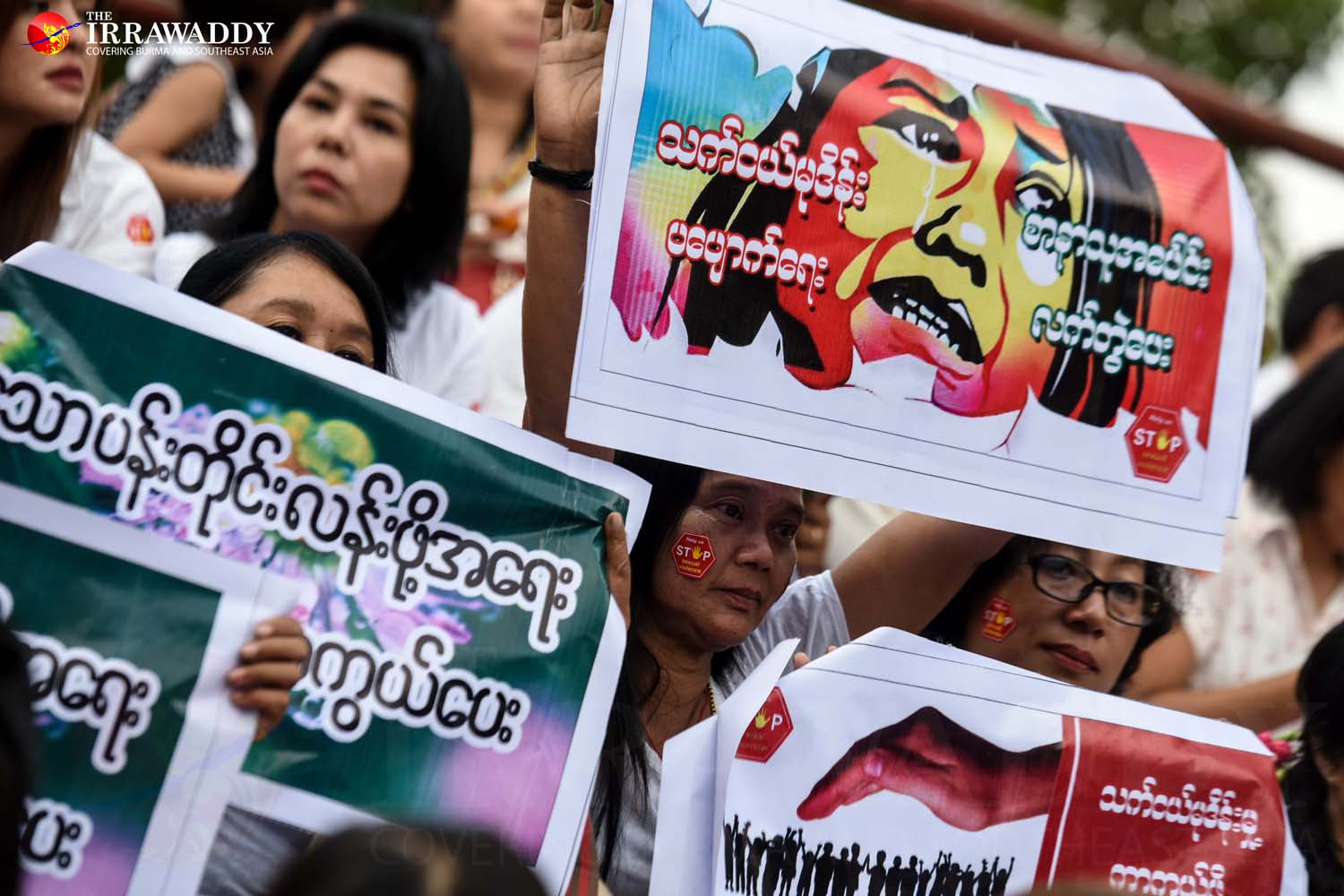
The number of child rape cases, including incest, has significantly increased in Burma, and so has the total number of reported rape cases.
Women rights activists, as well as members of the public, have voiced concern over the significant rise in child rape cases and have carried out campaigns, calling for harsher penalties against sex offenders. There have even been calls for the death penalty.
Lawmakers also raised the issue in Parliament and the government has promised to revise laws affecting children to better protect minors.
According to government figures child rape cases made up 61 percent of a total of 517 reported rape cases before December—a significant increase from 46 percent last year.
Threat to Press
To many journalists of the Burmese press, the murder of an Eleven Media Group reporter is not just the death of a newsroom compatriot, but it is also a threat to press freedom. Indeed, the Burma Army is still intolerant of negative portrayals of the institution.
Dec. 13—A local reporter for Eleven Media Group was deliberately killed in Sagaing Division’s Monywa Township. Police are still investigating the case, but it is widely believed that he was murdered in connection with his investigative reporting about illegal logging in the area.
June 29—7 Day Daily officially apologized to the Burma Army for a story that the army regarded as generating disunity within the establishment. This was after the army filed a lawsuit against the journal on June 25. Though the Burma Army dropped the case, this struck a nerve in terms of the limits of press freedom in Burma.
Article 66(d)
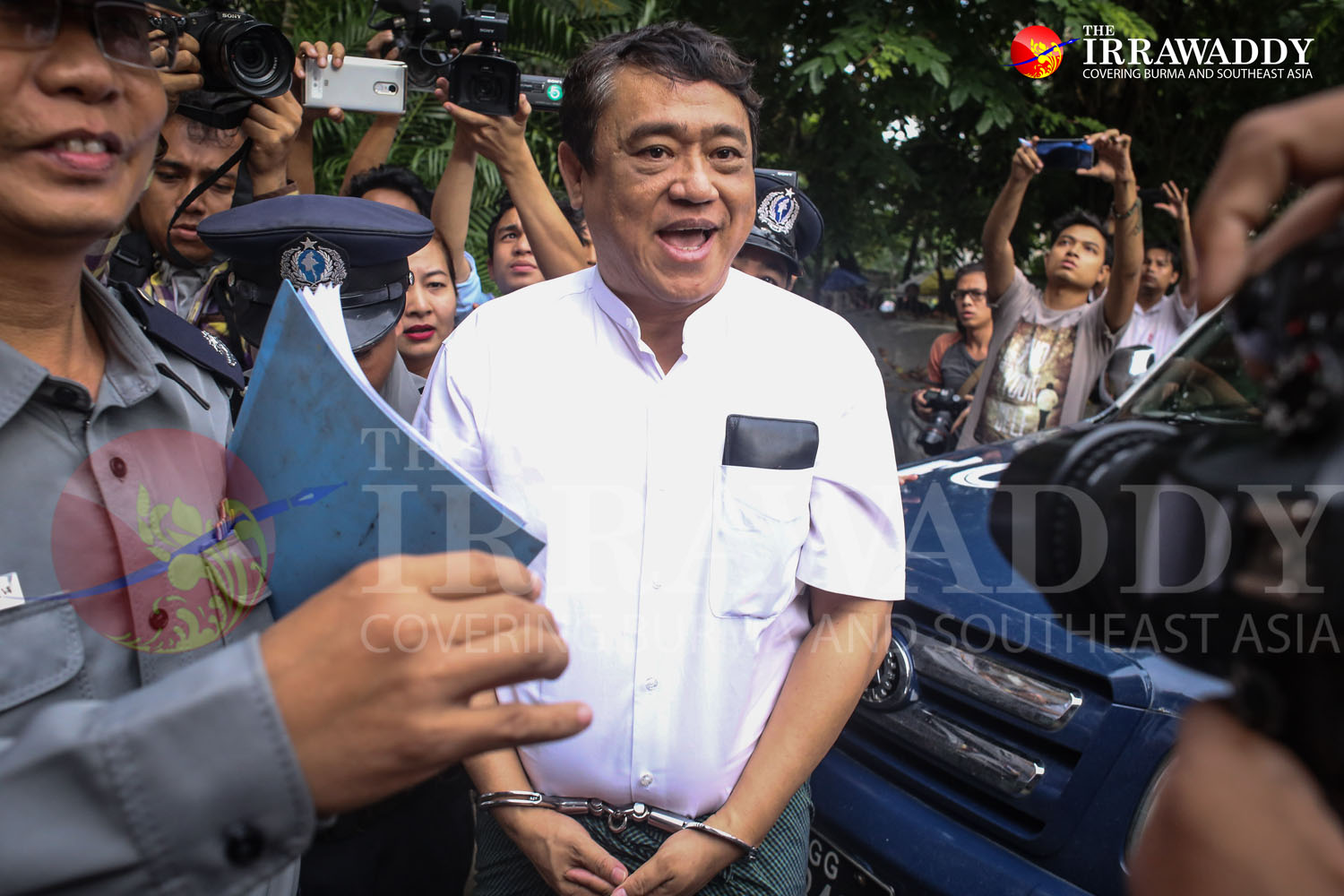
Following Rangoon government’s lawsuit against Eleven Media CEO under Article 66(d) of the Burma Telecommunications Law, controversy over this article has flared.
The law dates back to the military-backed administration of former President U Thein Sein, and it was mainly used to deter criticism of the government but has risen in popularity this year among the government, the Burma Army, and the NLD.
Between April and Dec. 23 a total of 38 Article 66(d) cases had been filed with 15 people arrested and five charged. There were only seven cases and five convictions under the previous government.
Many of the cases were put forward by the Burma Army in response to statements made on social media. Those charged under the article are denied bail even while the case is under investigation.
The Parliament has said that it has no plan to scrap the law, though it would introduce some changes. The Parliament’s Legal Affairs and Special Cases Assessment Commission is reviewing the law and will consider reducing the law’s penalties to bring them more in line with existing laws

















